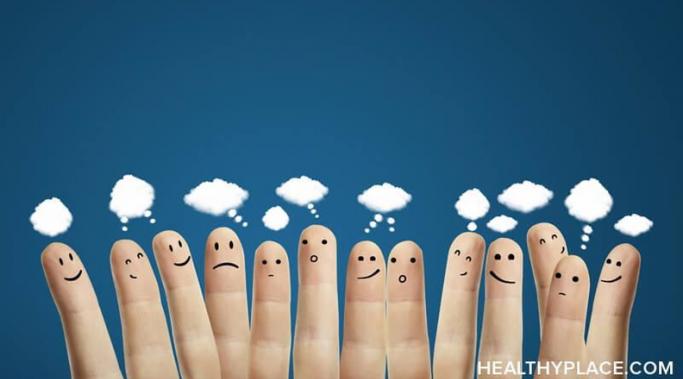Mental health stigma can cause isolation and loneliness in those with mental illness (Mental Illness, Isolation, and Loneliness). No one with a mental health problem should isolate themselves due to mental health stigma because loneliness can lead to more severe problems, even suicide. The loneliness of isolation certainly causes personal grief and sadness for those dealing with mental health stigma.
Stigma Video
Fighting mental health stigma dos are important. When talking about mental health stigma and offering some advice for combating it, we often talk in terms of what not to do. Don’t shame someone. Don’t say these things. Don’t believe the lies that stigma tells us. Recently there was a comment left on one of HealthyPlace’s blogs pointing this fact out and asking for some dos in fighting mental health stigma instead. Here are some of those dos, but keep in mind there are tons of other things you can do to fight mental health stigma.
Mental health stigma keeps many from seeking treatment (The Stigma of Seeking Mental Health Help and Treatment). When an illness such as schizophrenia or bipolar exists, two things commonly occur. The first is a symptom of a mental health issue which stigma makes worse called anosognosia. Anosognosia is when you have a mental health diagnosis but lack insight into your condition -- a huge problem with people who suffer from bipolar disorder. When you add this condition to mental health stigma, sufferers will not seek treatment because of these negative attitudes towards mental illness and their recovery period will be a much longer one. But that's not the only problem that may keep you from treatment
When a parent is affected by mental health stigma, there are unique problems that occur (Issues for Parents With Mental Illness). These difficulties can range from a neighbor or friend commenting on your fitness of being a parent while living with a mental health issue, to having to battle for your children during a divorce hearing, or even facing losing your children as a result of a breakdown. The important thing to remember is when you are a parent affected by mental health stigma, there is always hope and you have to focus on getting yourself better first.
Mental illness stigma and when to be honest in a relationship is tricky business. Being in a relationship when you have a mental illness can often make the difference between feeling good about yourself and feeling as though life has no meaning. Unfortunately, sometimes being honest about mental illness in a relationships causes people who believe in the stigma to leave.
Hi, my name is Leif Gregersen and I am excited to be starting a new position as your mental health blogger on the Surviving Mental Health Stigma blog. I was diagnosed with a mental illness at the young age of 14 and was bullied and ashamed of my condition. I remember having a very difficult time returning to school after a hospitalization and convincing my dad that I didn’t need pills. As a result, over the next four years, I became much sicker and my life only got worse. It is my hope that I can help people to have a better understanding of mental illness and overcome stigma. I strongly feel this is an essential step in recovery.
My name is Laura Barton and I am the new author of Surviving Mental Health Stigma Blog. I am a Canadian, writer of all sorts, lover of dystopian fiction, volunteer with the Canadian Body-Focused Repetitive Behavior Support Network, and a fan of tattoos, wolves and 1966 Batman.
I also live with mental health issues, some of which you’ve probably heard of and one that you might not have. Depression, anxiety and suicidal ideation have been a part of my life to different degrees, as has a disorder called excoriation (skin-picking) disorder, which I’m more likely to call dermatillomania. Living my way through these disorders and whatever hold they’ve tried to have on me, has shaped who I am today.
It seems more often these days that celebrities are coming out and admitting to the world that they have a mental illness (Do Celebrity Disclosures of Mental Illness Help End Stigma?). Some people feel that celebrities are glamorizing the issue and not demonstrating the realities of a person who lives with a mental illness (Is Having A Mental Illness A Gift?). However, I consider this act of honesty to be both empowering and courageous because their voices are not only prominent, but most importantly influential.
Greetings From The Bipolar Babe - Your Fellow Stigma Stomper
Hello, my name is Andrea Paquette and I am known as the Bipolar Babe in the mental health community. My website is www.bipolarbabe.com and my mandate is to stomp out stigma. Having been diagnosed with bipolar disorder at the age of twenty-six, I know what it means to face stigma internally and externally. It is my desire to share my personal experiences of living with bipolar and explore how I have dealt with stigma throughout my life for the past 11 years. I am genuine and honest, as if you were a close friend of mine. I promise to share all stories candidly, and I hope you will be my friend soon in this wonderful online community.
My name is Angela Elain Gambrel and I would like to welcome you to HealthyPlace and the Surviving Mental Health Stigma blog. I am: a writer, reader, and curious about this world and this journey we call life. I love books and cats and quiet times with a hot cup of herbal tea while listening to medieval chants. I am interested in people and religions and history, and read everything I can get my hands on about these subjects and more. I am passionate about helping others and the orphans of Haiti. I recently completed my master's degree in English Composition and Communication, and am now writing for a national website focused on children and cerebral palsy.









